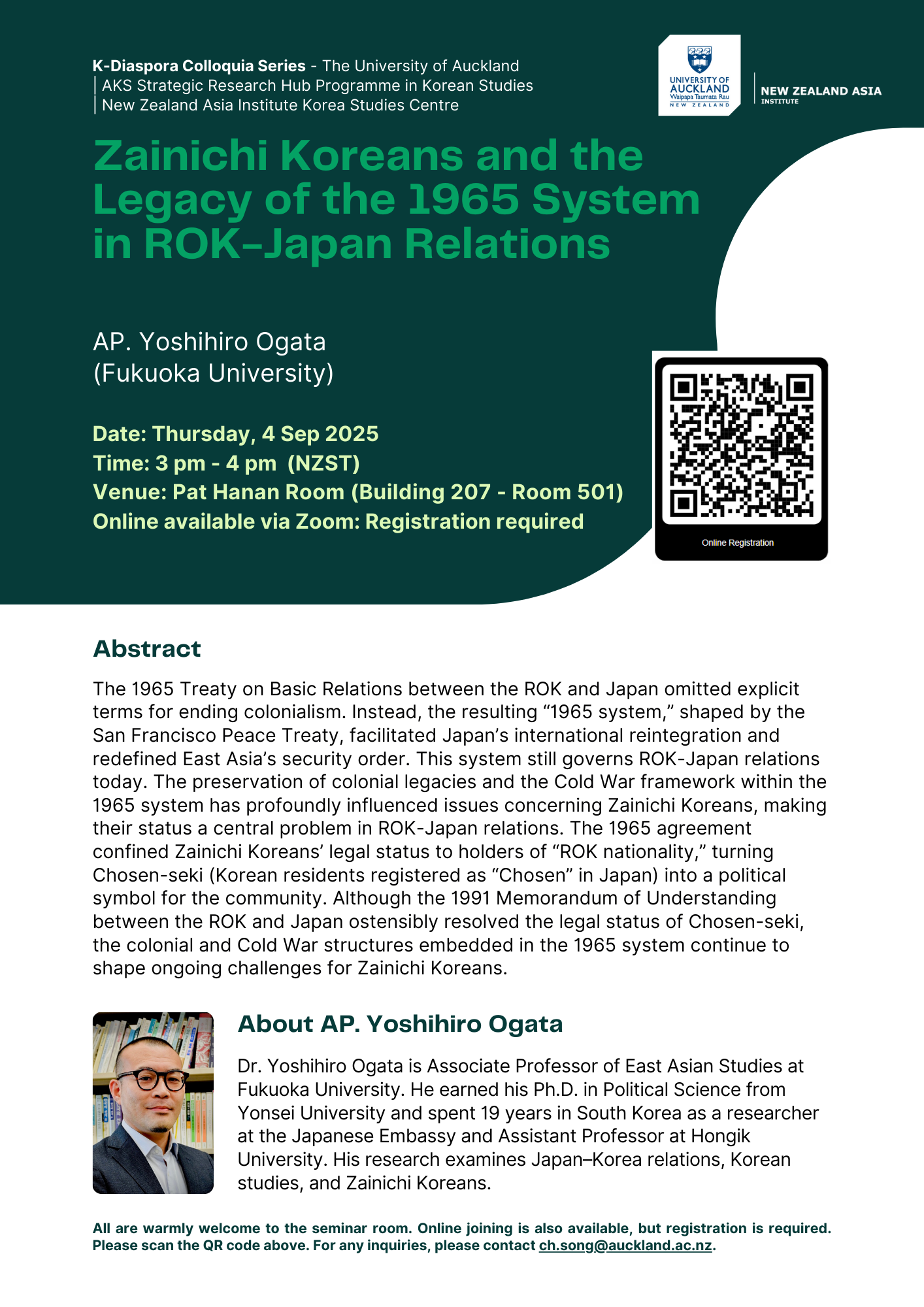time zone will be applied.
Report this post?

Special seminar in the University of Auckland’s K-Diaspora Colloquia Series, featuring Professor Yoshihiro Ogata from Fukuoka University.
His talk, “Zainichi Koreans and the Legacy of the 1965 System in ROK-Japan Relations,” will examine how the 1965 Treaty on Basic Relations between South Korea and Japan continues to shape the legal status, identity, and citizenship issues of Zainichi Koreans, and how Cold War structures embedded in this system still influence East Asian international relations.
This session is part of the University of Auckland's Strategic Research Hub programme in Korean Studies, generously supported by the Academy of Korean Studies (AKS).
| Event Details
| About the Talk
The 1965 Treaty on Basic Relations between the ROK and Japan omitted explicit terms for ending colonialism. Instead, the resulting “1965 system,” shaped by the San Francisco Peace Treaty, facilitated Japan’s international reintegration and redefined East Asia’s security order. This system still governs ROK-Japan relations today. The preservation of colonial legacies and the Cold War framework within the 1965 system has profoundly influenced issues concerning Zainichi Koreans, making their status a central problem in ROK-Japan relations. The 1965 agreement confined Zainichi Koreans’ legal status to holders of “ROK nationality,” turning Chosen-seki (Korean residents registered as “Chosen” in Japan) into a political symbol for the community. Although the 1991 Memorandum of Understanding between the ROK and Japan ostensibly resolved the legal status of Chosen-seki, the colonial and Cold War structures embedded in the 1965 system continue to shape ongoing challenges for Zainichi Koreans.
| Speaker Bio
Dr. Yoshihiro Ogata is Associate Professor of East Asian Studies at Fukuoka University. He earned his Ph.D. in Political Science from Yonsei University and spent 19 years in South Korea as a researcher at the Japanese Embassy and Assistant Professor at Hongik University. His research examines Japan–Korea relations, Korean studies, and Zainichi Koreans.